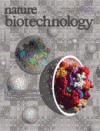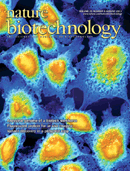 An Indian government agency has agreed to sue the developers of genetically modified (GM) eggplant for violating India’s Biological Diversity Act of 2002. India’s National Biodiversity Authority (NBA) is alleging that the developers of India’s first GM food crop—Jalna-based Maharashtra Hybrid Seeds Company (Mahyco) partnered with St. Louis–based seed giant Monsanto and several local universities—used local varieties to develop the transgenic crop, but failed to gain the appropriate licenses for field trials. Continue reading Monsanto to face biopiracy charges in India
An Indian government agency has agreed to sue the developers of genetically modified (GM) eggplant for violating India’s Biological Diversity Act of 2002. India’s National Biodiversity Authority (NBA) is alleging that the developers of India’s first GM food crop—Jalna-based Maharashtra Hybrid Seeds Company (Mahyco) partnered with St. Louis–based seed giant Monsanto and several local universities—used local varieties to develop the transgenic crop, but failed to gain the appropriate licenses for field trials. Continue reading Monsanto to face biopiracy charges in India
Category Archives: Nature Biotechnology
Transatlantic PML
 The European Medicine Agency and US Food and Drug Administration (FDA) published in September the proceedings of a joint workshop held to address questions related to progressive multifocal leukoencephalopathy (PML), a rare and sometimes fatal brain disease that can occur as an adverse drug reaction to some therapeutics that affect immunological functions. The meeting attended by 170 regulators, academic scientists, funding bodies and clinical researchers, called for work on animal models, predictive biomarkers and long-term studies. “No one company is going to answer all the questions; they’re going to be answered by research consortia,” says co-convener and European Medicines Agency (EMA) pharmacovigilance head Peter Arlett. Continue reading Transatlantic PML
The European Medicine Agency and US Food and Drug Administration (FDA) published in September the proceedings of a joint workshop held to address questions related to progressive multifocal leukoencephalopathy (PML), a rare and sometimes fatal brain disease that can occur as an adverse drug reaction to some therapeutics that affect immunological functions. The meeting attended by 170 regulators, academic scientists, funding bodies and clinical researchers, called for work on animal models, predictive biomarkers and long-term studies. “No one company is going to answer all the questions; they’re going to be answered by research consortia,” says co-convener and European Medicines Agency (EMA) pharmacovigilance head Peter Arlett. Continue reading Transatlantic PML
E. coli crisis opens door for Alexion drug trial
 This spring’s outbreak of a virulent form of Escherichia coli in Germany and France provoked a rapid response from public health authorities and the research community. Not only did the response represent a triumph of global collaboration in rapidly characterizing the Shiga toxin–producing strain but it also prompted an on-the-fly clinical trial of one of the world’s most expensive biotech drugs—Alexion’s humanized monoclonal antibody Soliris (eculizumab)—previously approved for the rare disease paroxysmal nocturnal hemoglobinuria (PNH). As thousands fell ill with the enterohemorrhagic E. coli (EHEC) strain O104:H4 from eating tainted food—a substantial fraction developing potentially fatal hemolytic uremic syndrome (HUS)—German and then French doctors turned to Soliris, which prevents the cleavage of complement component 5 (C5) and activation of the hemolytic cascade.
This spring’s outbreak of a virulent form of Escherichia coli in Germany and France provoked a rapid response from public health authorities and the research community. Not only did the response represent a triumph of global collaboration in rapidly characterizing the Shiga toxin–producing strain but it also prompted an on-the-fly clinical trial of one of the world’s most expensive biotech drugs—Alexion’s humanized monoclonal antibody Soliris (eculizumab)—previously approved for the rare disease paroxysmal nocturnal hemoglobinuria (PNH). As thousands fell ill with the enterohemorrhagic E. coli (EHEC) strain O104:H4 from eating tainted food—a substantial fraction developing potentially fatal hemolytic uremic syndrome (HUS)—German and then French doctors turned to Soliris, which prevents the cleavage of complement component 5 (C5) and activation of the hemolytic cascade.
Continue reading E. coli crisis opens door for Alexion drug trial
New self-reporting for GM crops
 Companies seeking approval for new biotech crops can now prepare their own environmental study or hire an outside contractor to do so. The new options, announced by the US Department of Agriculture’s Animal and Plant Health Inspection Service (APHIS) in April, are part of a two-year voluntary pilot program designed to speed up document preparation, although critics argue such self-reporting is inevitably biased. Currently, genetically modified (GM) crops can take years to approve, as the agency faces a backlog of nearly two dozen petitions, according to APHIS deputy administrator Michael Gregoire. Before a crop can be deregulated, the law requires a preliminary environmental study, followed by a more comprehensive environmental assessment conducted by APHIS (the regulatory arm of the US Department of Agriculture (USDA). The environmental assessment costs the petitioner $75,000–$100,000, although the USDA may decide a crop warrants a more detailed environmental impact statement, which can cost over a million dollars. Continue reading New self-reporting for GM crops
Companies seeking approval for new biotech crops can now prepare their own environmental study or hire an outside contractor to do so. The new options, announced by the US Department of Agriculture’s Animal and Plant Health Inspection Service (APHIS) in April, are part of a two-year voluntary pilot program designed to speed up document preparation, although critics argue such self-reporting is inevitably biased. Currently, genetically modified (GM) crops can take years to approve, as the agency faces a backlog of nearly two dozen petitions, according to APHIS deputy administrator Michael Gregoire. Before a crop can be deregulated, the law requires a preliminary environmental study, followed by a more comprehensive environmental assessment conducted by APHIS (the regulatory arm of the US Department of Agriculture (USDA). The environmental assessment costs the petitioner $75,000–$100,000, although the USDA may decide a crop warrants a more detailed environmental impact statement, which can cost over a million dollars. Continue reading New self-reporting for GM crops